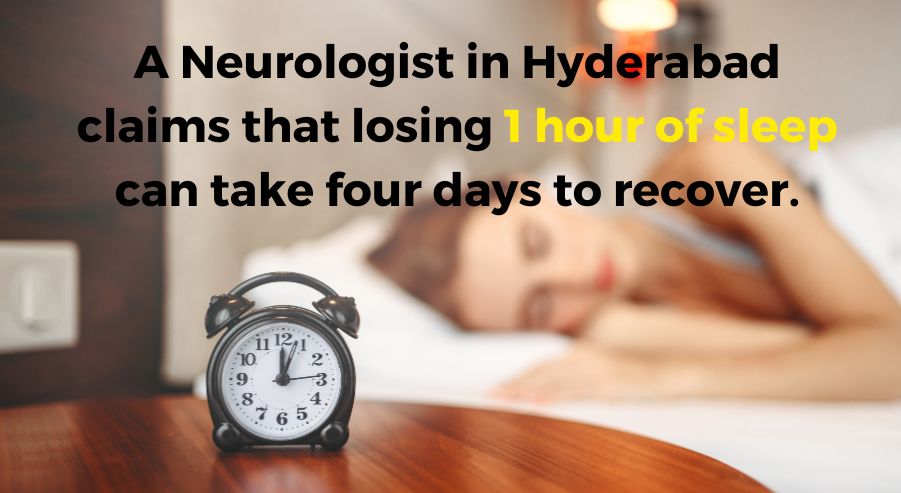Hyderabad, India- A viral post by Dr. Sudhir Kumar, a neurologist at Apollo Hospitals Hyderabad, spurred a heated discussion on X (previously Twitter) about the significance of sleep. Dr. Kumar’s remark that losing only one hour of sleep might take up to four days to recover has struck a chord with many, highlighting the often-overlooked implications of sleep deprivation.
“If you lose even one hour of sleep, it could take four days to recover,” Dr. Kumar wrote in his piece. He added that a lack of sleep can cause a variety of symptoms, including headaches, poor attention, increased irritability, and poorer decision-making. The post has since received more than 32,000 views and over 400 likes, eliciting a variety of responses from users.
Many users were curious in the amount of sleep necessary by different age groups. In response, Dr. Kumar made comprehensive recommendations.
- Newborns (up to 3 months old): 14–17 hours.
- Infants (4–12 months old): 12 to 16 hours, including naps.
- Young children (1–5 years old): 10 to 14 hours, including naps.
- School-aged children (6–12 years old): 9–12 hours.
- Teenagers (13–18 years old): 8 to 10 hours.
- Adults (18 years and up): 7-9 hours.
When asked if daytime naps may make up for missing nocturnal sleep, Dr. Kumar replied, “Absolutely.” The best choice is to sleep for 7-9 hours in one night. However, if someone can’t obtain the full amount of sleep at night, they could make up for the sleep deficiency by sleeping during the day.”
One user expressed their difficulty sleeping, saying, “I lose many hours of sleep every day despite following all of the requirements for getting ready to sleep! I have never been able to figure it out, but maybe at 81, I don’t need more than 5 hours of sleep despite being active.” Another commenter highlighted, “Sleep is indeed the elixir of life.”
Dr. Kumar, who has been practicing since 1994 and considers running his passion (he has completed 120 half-marathons), has certainly struck a chord with his admirers. His piece sheds light on the larger repercussions of sleep deprivation, underscoring the importance of getting enough rest for cognitive performance and overall well-being.
This debate emphasizes the necessity of prioritizing sleep and developing good habits to ensure adequate rest, particularly in our fast-paced lives when sleep frequently takes a backseat. As Dr. Kumar emphasizes, understanding and meeting our sleep demands can dramatically improve our health and quality of life.




